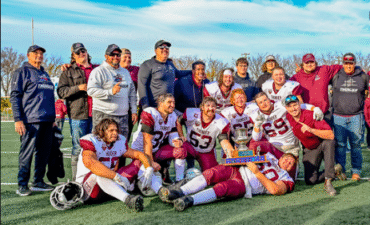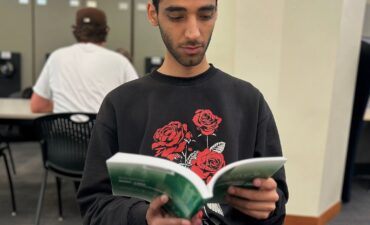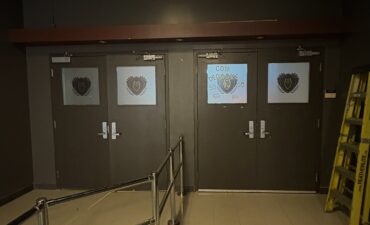
A University of Regina student is hoping a financial literacy initiative he started will be introduced into Saskatchewan high schools within the next five years.
The initiative, through the ENACTUS Club at the University of Regina Business School, adds a Grade 12 high school class to prepare students for adult financials and help them manage any future debts.
It was started by Salmaan Moolla and Gulariz Taria. Moolla is the current organizer. “It started off as just a little thing; we were going to go into classes and talk to students about having good finances.” From there, it built into a full class and curriculum.
A 2012 Statistics Canada publication on household debt says that higher income and higher education are associated with an increased probability of holding a high level of debt and individuals with at least some postsecondary education comprised about one-half of the population by 60 per cent of those with debt.
In the same publication Statistics Canada says higher levels of debt were found among “younger individuals, recent immigrants, highly educated people and employed individuals.”
Moolla said the inspiration for the initiative was from his experience of taking one of the first personal finance classes at Campbell Collegiate. His passion for financial literacy continued in university.
“Things that we use every single day aren’t taught about in our high schools. We’re taught everything from trigonometry to annotating poems, but we’re not taught one of the most fundamental things that we need to live everyday,” Moolla said.
Moolla and Taria looked at Business 291: Personal Finance at the university as a base class to begin. It taught the basics of everyday life finances. They began to adapt it to high school. Then ran into a difficulties as neither had developed curriculums before.
Multiple university professors, teachers and students helped with the development of the curriculum and initiative in general.
Jae Won Hur took Business 291 and helped with the initiative being designed for non-university students. “My experience in that class was great. I got to learn about saving, budgeting and investing personally. I’m not a finance major so it gave me a good synopsis for my financial situation.”
Hur thinks the initiative should be supported and in high schools because “the general population needs to be more aware of basic financial literacy.”
The curriculum is created as a new class that would be another option for Grade 12 students. Moolla said as some have spares in their final year, it has the potential to fit into a student’s schedule.
In November 2017, School Board Trustee Adam Hicks proposed the initiative to all 28 provincial school boards at their annual meeting. The Business School made a video proposal and the school boards voted 92 per cent in favour of adding the curriculum to all Saskatchewan high schools.
Hicks got involved because he believes financial literacy is one of the top things to focus on in schools. “Growing up, [financial literacy] is something that I missed out on and I feel like it’s a skill that needs to be taught to young people,” Hicks said.
The next step for the initiative is to be approved in the Saskatchewan Legislature for provincial funding. This won’t be achieved until a new Premier is elected.
Moolla said he hopes it is pass and implemented soon. He said as more students graduate without the class, less adults have a strong financial literacy base. “As we keep going on, we keep losing years. It’s always ‘Okay, we’ll get to it next year.’”
Moolla is asking people to help get the initiative going. “It all starts with the parents and students going up to their teachers, going up to their principals, going up to their school board trustees and pushing for this, because if we don’t push for it, it won’t come to fruition. As much as we propose it and plan and do projects, until we get that real movement from people it’s not going to go anywhere.”














